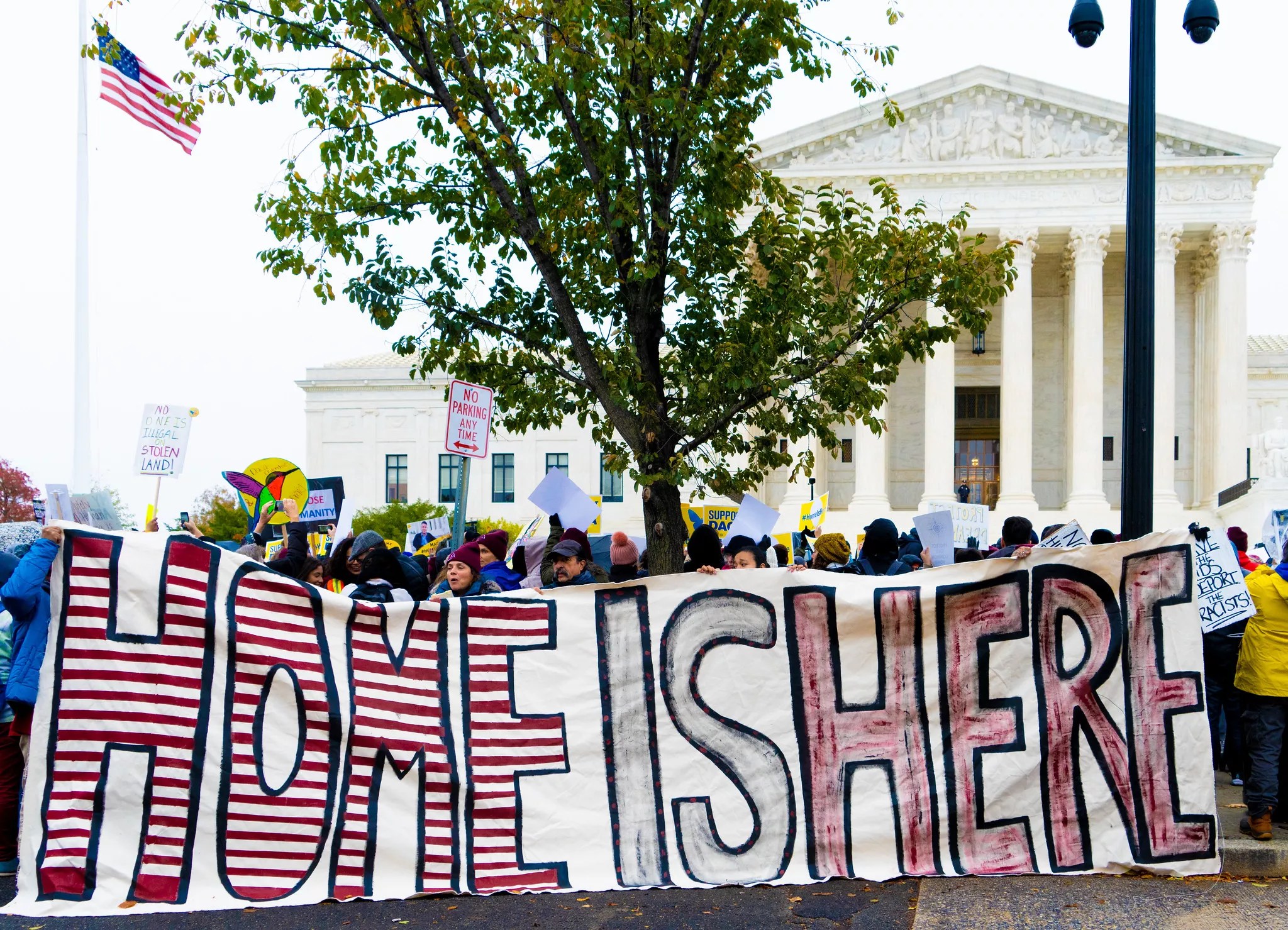
Victoria Pickering via Flickr

Audio By Carbonatix
At the beginning of June, Jesus Vazquez De La Cruz sent in an application for DACA.
In the back of his mind, he said, was the Texas case challenging the immigration policy, pending before a federal judge. But he was still hopeful, and focused on what the relief offered by DACA, or Deferred Action Against Childhood Arrivals, could mean for him: Protection from deportation. A driver’s license.
But last week, U.S. District Judge Andrew Hanen ruled DACA illegal, leaving Vazquez De La Cruz – and tens of thousands of DACA applicants like him – in limbo. In Arizona, which is home to more than 24,000 DACA recipients, the ruling has sent a wave of anxiety through immigrant communities, serving as a reminder of the uncertainty of DACA protections, and the long-unfulfilled promise of a pathway to citizenship for immigrant youth.
The July 16 ruling declared DACA illegal, arguing that its creation in 2012 violated the Administrative Procedure Act. Hanen directed the Department of Homeland Security to stop approving new applications to the program. For now, at least, those who have already received DACA status will not be affected by the ruling, and will still be able to apply for renewals.
But for Vazquez De La Cruz, the news of the ruling was “devastating.”
Born in Nogales, Mexico, he has lived in Phoenix since he was 3 years old: “All I know is Arizona,” he says. He is 23 now, and recently began a new job with the Arizona Dream Act Coalition, a local advocacy group. DACA status, he had hoped, would have allowed him to get a work permit and start focusing on a career.
“But so far, those dreams, those aspirations, have been put on hold,” he said.
It’s not clear when, or if, the government will once again begin processing DACA applications. The Biden administration has vowed to appeal the ruling, which could bring the legal fight to the U.S. Supreme Court. In Congress, some legislators are pushing to wrap immigration reforms into the $3.5 trillion budget deal currently being negotiated in the Senate, providing an alternative to the program.
The uncertainty is familiar to Jose Patiño, education director for Aliento, an organization that works with undocumented youth and DACA recipients in Arizona. Patiño, himself a DACA recipient, watched the Trump administration try to rescind the policy in 2017, a move that shut down new DACA applications for the next three years, until a federal judge restored the program in December 2020. After all the turmoil, last week’s news felt like a “gut punch,” Patiño said.
“For older folks like myself who currently have DACA status, it just created this uneasiness,” he said.
Since December, Patiño has been working with Arizona youth on their applications. “They were so excited to finally be able to get a driver’s license. Finally be able to apply for their first jobs,” he said. “It’s just very cruel. Most people applying are 16-, 17-, 18-year-olds.”
Many ran into hurdles in the application process, however, adding to the frustration. United States Citizenship and Immigration Services, the agency that processes the applications, has been backlogged this year. DACA recipients have struggled to get their status renewed. Prospective recipients have waited for months for any motion on their cases.
Beatriz Gutierrez’s 18-year-old son, Alberto, applied for DACA as soon as the program reopened for applications last December. The family lives in Phoenix; her son was brought to the U.S. when he was just 4 years old. For seven months, they waited for an update on his case. But none ever arrived.
“Now our hopes are crushed,” she told New Times in Spanish. “He’s asking me, ‘Mom, what’s going to happen’?”
Pressure is now building for Congress to take action. Democrats’ $3.5 trillion budget bill presents a rare opportunity for immigration reform to be passed via a reconciliation process – and therefore, by only a simple majority. Top Democrats have said a path to citizenship is likely to be included in the bill. And all eyes are on Arizona Senator Kyrsten Sinema, whose support will be pivotal to any deal.
“We need immigration reform. We need her to commit to voting on this, and to push for this solution,” said Karina Ruiz, executive director of the Arizona Dream Act Coalition. “The ball is in their court.”
For local advocates, last week’s ruling on DACA makes a long-term solution more critical. Vazquez De La Cruz says he worries that, even if his DACA application is one day approved, it will feel like only a fragile solution.
“What happens after that?” he said. “That’s always the question that lingers on.”